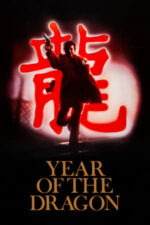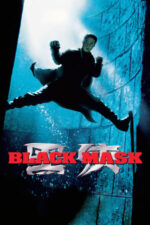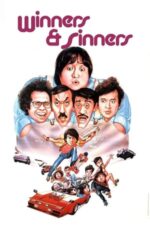Beyond Noodles & Fortune Cookies: Exploring the World of Chinese Mafia in Cinema
Okay, let’s talk about something fascinating – the portrayal of Chinese mafia within film. It's a topic that often gets reduced to stereotypes and caricatures, but when handled with nuance (and sometimes even a healthy dose of absurdity!), it can offer a really compelling window into complex social issues, cultural clashes, and the enduring allure of power. We’ve all seen the tropes – the dragon tattoos, the inscrutable faces, the shadowy backrooms… But what does this cinematic tradition really tell us?
For a long time, depictions were often rooted in anxieties about “the other,” particularly during periods of heightened immigration or economic uncertainty. Think about how early portrayals sometimes leaned into Orientalist tropes – and that’s something we need to be critical of when revisiting older films. However, more recent cinema has started to move beyond those simplistic representations, offering a far richer understanding of the structures and motivations behind these organizations.
Take The Last Tycoon, for example. It's not just about gangsters; it's a sweeping historical drama set against the backdrop of pre-war Shanghai, showcasing how political instability and economic desperation can breed criminal empires. Cheng’s rise to power isn't presented as some inherent evil – it’s a consequence of circumstance, ambition, and betrayal. It’s a fascinating look at how systems can push individuals into morally ambiguous positions. It reminds me a little bit of The Godfather, in the sense that it explores the idea of family and loyalty within a criminal enterprise, but with a distinctly Chinese cultural context.
Then you have films like Year of the Dragon, which tackles the issue head-on through the lens of law enforcement. It’s gritty, intense, and raises uncomfortable questions about prejudice and the lengths to which we'll go in pursuit of justice – even if it means crossing ethical lines. It’s a stark contrast to something like Rush Hour, where the Chinese mafia elements are largely played for comedic effect alongside the buddy-cop dynamic. While undeniably entertaining (and who doesn’t love Jackie Chan?), it doesn’t delve into the same thematic depths as some of its more serious counterparts.
And let's not forget films that embrace a lighter, almost satirical approach! Nuns on the Run is pure, unadulterated fun – a wonderfully bizarre heist comedy where criminals end up hiding in a nunnery. It’s silly, it’s chaotic, and it subverts expectations in a way that's genuinely refreshing. It proves you can explore these themes without sacrificing humor or heart.
Ultimately, the portrayal of Chinese mafia in film is evolving. We’re moving beyond simplistic stereotypes towards more complex narratives that examine the social, political, and personal forces at play. It’s a fascinating area to explore – so next time you're looking for something a little different, consider venturing beyond the usual action fare and diving into these films. You might be surprised by what you discover!
What are your thoughts? Have you seen any other interesting takes on this theme? I'd love to hear them!




































